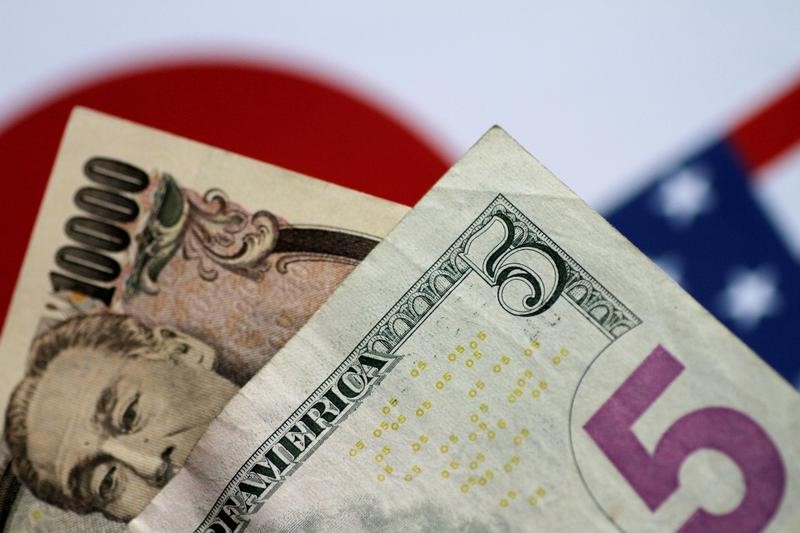
Most regional currencies extended gains from the prior week, especially after comments from Fed Chair Jerome Powell on Friday cemented expectations for a rate cut.
But anticipation of more U.S. economic data this week, particularly key inflation data, still spurred some caution, as markets remained uncertain over the size of a September cut.
The dollar index and dollar index futures both fell slightly in Asian trade, and were trading at their weakest levels since July 2023.
The greenback was pressured by Powell’s comments, as the Fed Chair said that further cooling in the labor market was unhealthy, and said it was time to begin adjusting policy accordingly.
Speaking at the Jackson Hole Symposium, Powell noted that inflation was close to the Fed’s 2% annual target, but said that the timing and scale of any rate cuts will still depend on economic data.
Powell’s comments cemented expectations for a September cut. But CME Fedwatch showed traders split over a 25 and 50 basis point reduction.
His comments also saw focus turn squarely towards upcoming economic data this week, with PCE price index data due Friday set to offer more definitive cues on rates.
The reading is the Fed’s preferred inflation gauge, and is likely to factor into the central bank’s outlook on rates.
The Japanese yen was among the better performers in Asia, with the USDJPY pair falling 0.4% on Monday. The pair was also close to lows last seen in early-August, where a hawkish Bank of Japan, increased safe haven demand and an unwinding carry trade put the currency at its strongest levels since early-January.
But strength in the yen somewhat undermined a risk-on move across Asian markets, given that it also presented a further unwinding in the carry trade that had fueled strong capital flows into Asian markets.
The yen is likely primed for more strength this year, especially with the prospect of lower interest rates in the U.S. and potential rate hikes by the Bank of Japan.
Inflation data from Tokyo, due this Friday, is set to offer more cues.
Broader Asian currencies were a mixed bag. The Chinese yuan’s USDCNY pair fell slightly after the People’s Bank kept its medium-term lending rate unchanged and withdrew about 101 billion yuan of liquidity through the facility.
The Australian dollar’s AUDUSD pair fell 0.2%, cooling after strong gains over the past week.
The South Korean won’s USDKRW pair rose 0.2%, while the Indian rupee’s USDINR pair steadied after breaking well below record highs on Friday.
To read the full article, Click Here

